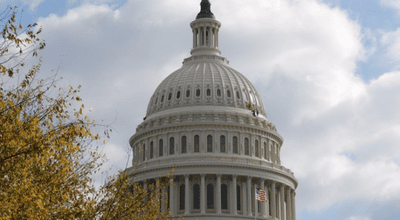Advocacy benefits citizens, says Ivan Adler to The Washington Post. “If you have a job, own a home, or a car or even have a pet, you have somebody in Washington representing your interests.”
|
Experts agree that to create conditions to boost economic growth, we must focus on a region’s expertise. Well, in the greater Washington region’s efforts to find clusters that define its identity and create a competitive advantage, it might be short-changing an industry that is very much part of the equation: advocacy.
Advocacy encompasses trade associations, social science research organizations, lobbying groups, philanthropic groups and firms. It employs more than 117,000 people in our region, according to data gathered by the Stephen Fuller Institute at George Mason University. It is one of our region’s dominant economic clusters, with twice as many professionals as in our healthcare industry and three times as many as in media.
Over the last two years, advocacy was one of only two economic clusters that enjoyed job growth in the greater Washington region faster than national averages, according to the Fuller Institute. If this industry is so important, why it is not more widely celebrated or viewed as a regional economic asset?
The industry is misunderstood, albeit with some justification, and suffering from a negative association with the process of government, according to Ivan Adler, a principal at McCormick Group. He says most people don’t really know what advocacy is, believing that it “is just buying influence for wealthy corporate interests.”
Rich Gold, leader of the public policy and regulation group at Holland & Knight, attributed the misconceptions to a broad societal distrust of intermediaries — whether a hedge fund manager or a car salesman. He says for many outsiders, using intermediaries creates a fear that power is being used for self-interest, with these fears being justified through media coverage of the actions of small numbers of “bad apples.”
Being good at advocacy may in itself create negativity. Stewart Verdery, founder of Monument Policy Group, observed that because being proximate to government provides an avenue for professional and entrepreneurial success, this creates a perception that our region’s professionals have a standard of living “unfairly detached from” the rest of America. Shows like “House of Cards” and “Veep” create an impression of Washingtonians that is out of touch with the daily realities of American life. It’s because of this negativity surrounding advocacy and its close relationship with government that so many people snub the industry as a source of job creation and growth.
However, advocacy is not just about corporate interests — it speaks for every significant social and economic issue facing our citizens.
“If you have a job, own a home, or a car or even have a pet, you have somebody in Washington representing your interests,” Adler says. “And this is a good thing and a right granted to us by the First Amendment.”
Let’s not forget that lobbying also creates opportunities for the creation of businesses in other industry clusters that benefit from proximity to lobbyists
To read the rest of the article, go to | The Washington Post
To contact Ivan Adler, go to | Ivan Adler


